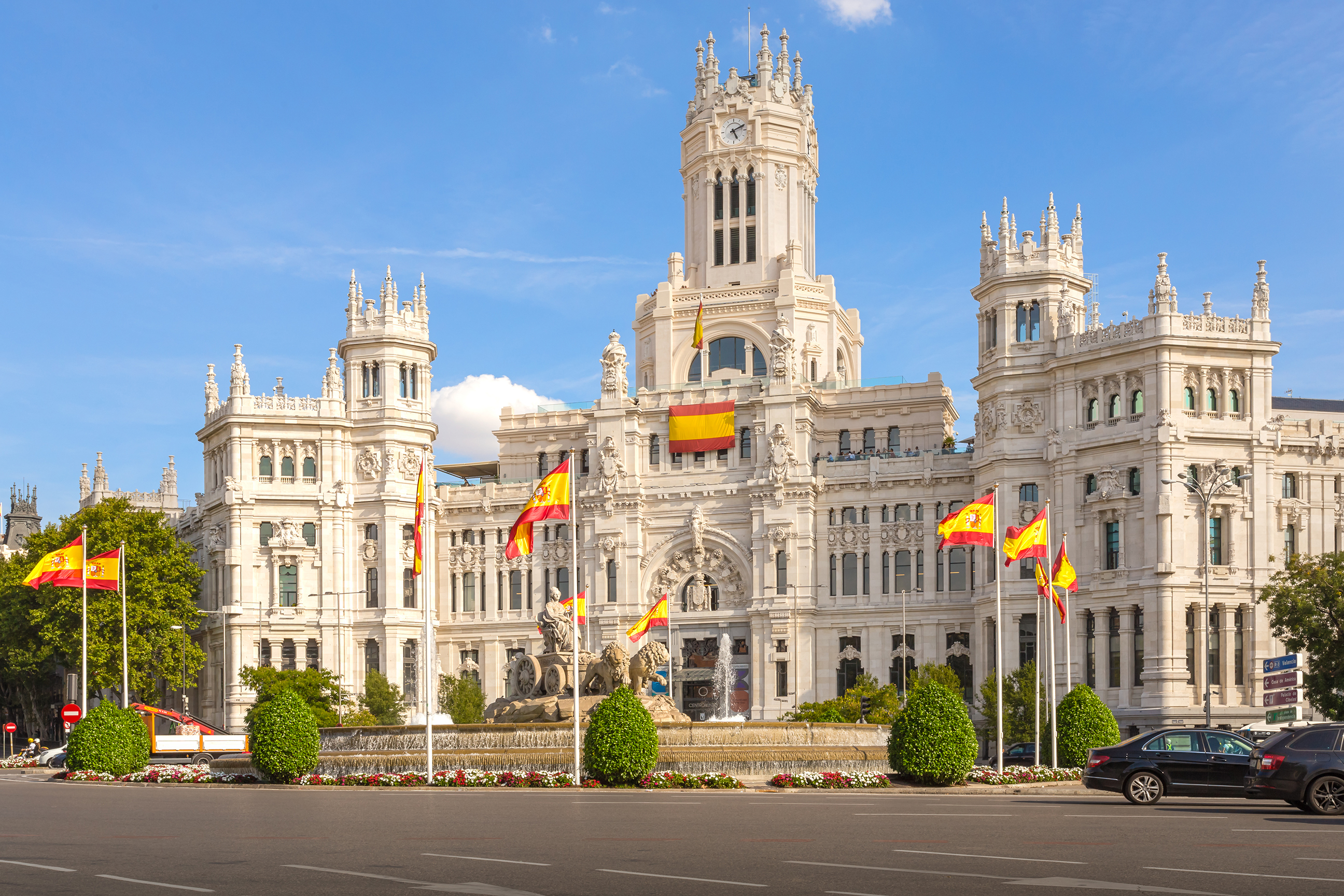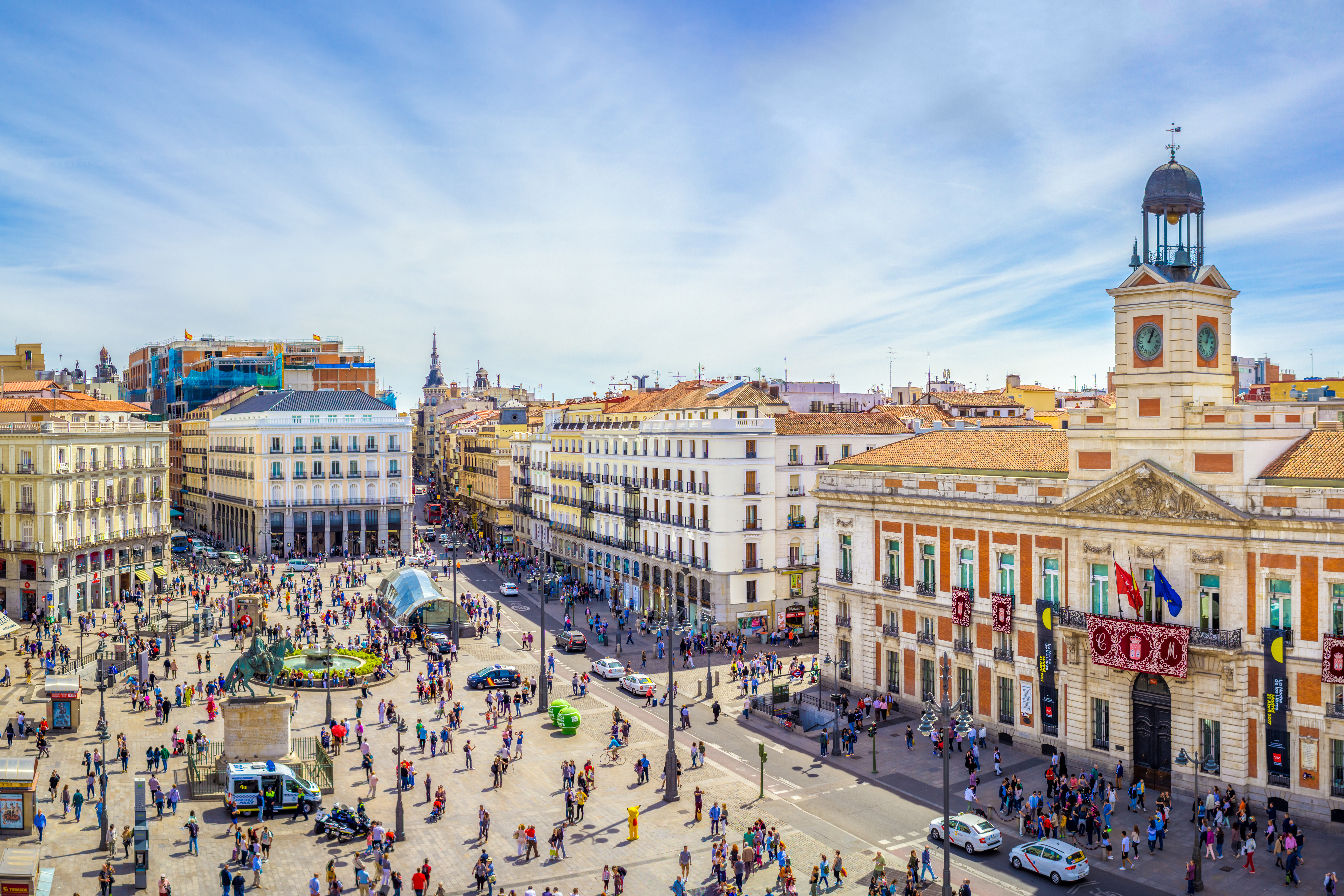Immigration to Spain for permanent residency means acquiring the status of a resident in a European Union Member State with a change of place of residence. Immigration to Spain involves obtaining a temporary residence permit initially, followed by a permanent residence permit under Law 4/2000 “On the Rights and Freedoms of Foreigners in Spain and Their Social Integration.” Below, you’ll find information on how to move to Spain, the required documents, and the most suitable cities for foreign nationals to reside in.
Is it worth moving to Spain?
Relocating to Spain for permanent residence can be attractive for immigrants who wish to:
- Travel visa-free to other EU countries.
- Officially work and conduct business in the country.
- Receive free higher education in Spanish universities.
- Access quality healthcare based on an insurance policy issued within the country.
- Benefit from social aids and allowances.
Key advantages of living in Spain for foreigners:
- Level of security.
- High-quality healthcare.
- Lower property costs compared to other EU countries.
Spain ranks 22nd in the Safety Index among European countries, surpassing Luxembourg, the Netherlands, Poland, Austria, and other developed EU nations.
Spanish doctors regularly enhance their qualifications through training in top clinics across Europe, the United States, and Canada. Spain ranks 8th globally in healthcare quality, ahead of Belgium, the United Kingdom, and other advanced countries.
As of May 2023, the average price of a 60 m² apartment in central Barcelona is about 303,840 EUR, and in Madrid, around 260,460 EUR. In comparison, a similar apartment in Rome would cost about 422,700 EUR, and in Berlin, approximately 479,700 EUR.

Requirements for moving to Spain
To move to Spain, foreigners need to determine their method of legalizing their residence. Applicants must find a basis for a long-term stay in Spain. As of 2023, the Spanish government offers several immigration programs catering to individuals with varying income levels.
To immmigrate to Spain from non-EU countries, one must first apply for a long-term visa D at the Spanish embassy or consulate in their home country. Upon arrival in Spain, individuals should apply for temporary residency, and after five years, they can apply for permanent residency.
Conditions for obtaining resident status
Foreigners wishing to move to Spain for permanent residence must meet the following conditions:
- A minimum of five years of continuous residence in Spain as a temporary resident.
- The applicant and their family members must not be nationals of Switzerland, the EU, or the EEA.
- There must be valid grounds for long-term residence in Spain.
- No criminal record in Spain or previous countries of residence for offenses considered crimes under local law.
- Sufficient financial means to support themselves in Spain or a stable source of income.
- No entry ban into the country.
Get advice
Required documents
To apply for residence permit in Spain, prepare a dossier with the following documents:
- Two copies of the completed Residence Permit Application Form EX-11.
- A copy of a valid passport or identity card.
- A 32 x 26 mm photograph taken against a white background.
- A receipt for the payment of the state duty, completed on form 790/012.
Documents issued outside Spain must be translated into Spanish or another official language of the territory where the immigrant is applying for permanent residence. Additionally, these documents must be legalized at a foreign consulate in the applicant’s place of residence or apostilled.

Cost of moving to Spain
To enter Spain and subsequently apply for a residence permit, you must provide proof of sufficient funds to support your stay in the country. The required amount is calculated by multiplying the number of days you plan to stay by 10% of Spain’s minimum monthly wage (which is 1080 EUR as of 2023). For instance, if you intend to stay in Spain for 180 days, you should have at least 19,440 EUR in your bank account.
The table below shows the amount of monthly income that foreigners need to prove in 2023 in order to obtain a residence permit, depending on the basis of its issuance.
| Type of residency | Minimum income, € |
|---|---|
| No right to work | 2400 |
| Family reunification | 900 |
| Education | 600 |
The main expenses for foreigners to obtain Spanish permanent residency in 2023 are shown in the table below.
| Item of expenditure | Price, approx. in € |
|---|---|
| Long-term visa D | 80 |
| Obtaining a residence permit (depending on the grounds) | 10–38 |
| Extension of residence permit | 16–32 |
| Processing of permanent residency | 22 |
| Notarization of document copies (per page) | 3 |
| Translation, legalization and apostille (depends on the number of lines in the document) | 33–101 |
| Signature legalization | 8 |
| Legalization of document photocopy (per page) | 3 |
Specialists are ready to make a detailed calculation of the cost of for the applicant and his family members.
Available immigration programs
Foreigners can move to Spain and apply for a residence permit and eventually permanent residence for the following reasons:
- Employment. Individuals over 16 years old can apply for a residence permit based on employment. Applicants must obtain a work permit from a Spanish employer, which is issued along with the residence permit by the government. The initial residence permit is valid for one year, with the possibility of renewal for continued employment, eventually leading to permanent residency.
- Entrepreneurship. Foreign entrepreneurs can open a business in Spain and apply for a residence permit. Requirements include making the necessary capital investments, registering with the tax office and social security, and opening a bank account. Initially, the residence permit for entrepreneurs is issued for one year and is restricted to the Autonomous Community where the application was made.
- Family reunification. Family members of Spanish residents, including spouses, children, individuals under 18 years old or those unable to care for themselves due to health reasons, and parents aged 65 years or older, can apply for a residence permit.
- Education. Students enrolled in Spanish universities can apply for a residence permit based on their studies. The permit’s validity corresponds to the study period. Upon graduation, applicants must find another legal basis to stay in the country, such as starting a business or securing employment. During their studies, students are allowed to work for Spanish employers.
- Investment. Foreign investors can apply for a two-year residence permit. Requirements in 2023 include investments in government securities (from 2 million EUR), real estate (minimum 500,000 EUR), business projects, local companies’ economies, investment or venture capital funds, or deposits (from 1 million EUR).
- Humanitarian reasons. Individuals granted refugee status or who can prove they have no other nationality may obtain a residence permit. The duration is determined individually by public authorities.
- Other reasons. Foreigners who have been in Spain for 2 to 3 years can apply for a residence permit based on employment, education, or social reasons (family reunification). Applicants living in the country without immigration status can also apply. The duration depends on the application basis, with residence permits for social reasons issued for 5 years, and those for study and work issued for 12 months.

How to move to Spain: stages of legalization
- Obtaining a long-term type D visa.
Immigrants must apply for a national entry permit at the Spanish embassy or consulate in their home country, preparing a dossier according to the current legislation. The average processing time is up to 30 days, though some applications may take 2-3 months. - Applying for temporary residency.
Upon arrival in Spain, applicants must submit a complete set of documents to the Immigration Service or Police Station in their place of residence. The authorized body will review the application within 3 to 6 months. - Applying for permanent residence.
Applicants must then apply for permanent residence at the Police Station or Immigration Service office. A complete dossier must be prepared according to current Spanish legislation. The decision-making period is 3 to 6 months.
Apply for a Spanish residence permit and unlock new opportunities
- Experience life in a developed country
- Secure a residence permit for all family members
- Explore prospects for permanent residency and citizenship
- Travel visa-free throughout Europe
- Cost — from 3 000 EUR

Leave an application and get a consultation specialist
Where immigrants move to in Spain
Before moving to Spain for permanent residence, it’s important to choose the right region and start by assessing:
- The state of the region’s infrastructure and safety levels.
- Employment and business opportunities.
- The possibility of relocating with compensation (potential social benefits and allowances).
- The cost of living in the city.
Below are the pros and cons of cities popular among immigrants.
Ponga
The village of Ponga in the Asturias province, with a population of 684 people (as of 2023), attracts foreigners preferring a quieter life. Previously, the local government offered 3000 euros to all immigrants who had a residence permit. Although this payment is no longer available in 2023, the village is appealing to remote workers due to its clean air and good ecology.
The locals primarily engage in animal husbandry and dairy production. Wine production is also popular. Immigrants may find employment in local businesses or farms.
However, the village’s infrastructure is underdeveloped: the nearest hospital is 38 km away, and there are no schools or kindergartens, making it unsuitable for families with children. Public buses run only twice a day, with tickets costing around 3 EUR.
Valencia
Valencia is one of the top choices for expatriates. It ranks 7th in the International Safety Index for its low crime rate.
The city boasts over 60 hospitals and 60 educational institutions, including private and public universities offering more than 60 specialties in fields like economics, mathematics, astronomy, biology, political science, law, and pharmacology.

In 2023, the average salary in Valencia after taxes is about 1623 EUR. Monthly living expenses for one person, excluding rent, are around 662 EUR. This includes:
- Utility bills: 134 EUR.
- Monthly public transportation pass: 31 EUR.
- Entertainment (movies, theaters, gyms): 68 EUR.
- Food: 200 EUR.
Renting a one-bedroom apartment in the city center costs about 821 EUR per month, while in residential areas, it’s around 591 EUR.
Valencia’s job market is robust, especially for IT specialists, engineers, doctors, and workers in the food, pharmaceutical, and chemical industries. Entrepreneurs often engage in the tourism sector, running cafes, restaurants, and souvenir shops.
Barcelona
Barcelona, the capital of Catalonia, is favored by foreign businessmen, investors, students, and migrant workers. The city has a major port, an international airport, and well-developed road and rail links. It ranks 2nd in the Safety Index for Spanish cities.
Barcelona has over 90 clinics and 40 universities and colleges, offering programs in economics, philology, engineering, law, medicine, and more.

In 2023, the average salary in Barcelona is 1774 EUR after taxes. Monthly expenses are around 756 EUR, including utilities (165 EUR), food (250 EUR), and a public transportation pass (40 EUR). Renting a one-bedroom apartment costs about 1077 EUR in the city center and 867 EUR in residential areas.
High-demand professions in Barcelona include:
- hotel administrators;
- marketing specialists;
- waiters;
- cooks;
- teachers;
- healthcare professionals.
The local economy heavily relies on tourism. Barcelona is a resort city where the tourist season lasts all year round. Businessmen are engaged in the hotel and restaurant sector. Also, many entrepreneurs organize agencies for selling sightseeing tours.
Madrid
Madrid, Spain’s business and financial hub, is popular among immigrants seeking employment or business opportunities. The city houses the main offices of major corporations like Google Torre Picasso, Microsoft Iberica, and META Madrid Office. Entrepreneurs thrive in the commercial and service sectors.
Popular jobs in Madrid include:
- waiters;
- office staff;
- administrators;
- economists;
- healthcare professionals.
In 2023, the average salary after taxes in Madrid is 2042 EUR. Monthly living expenses are around 731 EUR per person, with utilities costing about 160 EUR and food around 300 EUR. Renting a one-bedroom apartment in the city center costs about 1000 EUR, while in residential areas, it’s around 764 EUR.

Madrid ranks 8th in the Safety Index, indicating a low crime rate. The city also offers extensive medical care with over 80 clinics and numerous universities, including the Polytechnic, Autonomous, Complutense, and Nebrija Universities.
Consequences of illegal immigration
When immigrating to Spain for permanent residence, applicants may face denial of their residence permit for the following reasons:
- Lack of grounds for residence in the country or insufficient funds to live in the kingdom.
- Having a criminal record in Spain or the country of first citizenship.
- Submission of an incomplete set of documents.
Illegal immigration to Spain or residence without authorization documents or with a residence permit overdue by more than three months entails fines for foreigners ranging from 501 to 10,000 EUR or deportation. If the applicant is sanctioned with expulsion from the state, their residence permit is automatically revoked. Also, immigrants are prohibited from entering the territory of Spain for a period determined by government authorities, but not exceeding five years.

Feedback from those who have moved to different Spanish regions
Based on reviews from foreigners who moved to Spain for permanent residence, it can be concluded that not all aspects of life in the kingdom suit applicants. The first complaint from many immigrants is the need to learn Spanish, as locals, especially in small towns, often do not understand English.
By their mentality, Spaniards are a leisurely nation. Every day from approximately 14:00 to 16:00, all establishments and offices close for siesta. Such a break in the working day is not particularly satisfying for individuals who are accustomed to fully dedicating themselves to their work, as well as those from large metropolitan areas where life never stops.
Immigrants pay special attention to the healthcare system. Visiting foreigners note that most Spanish hospitals have modern equipment that allows doctors to make timely diagnoses and prescribe treatment. The average waiting time for an appointment with a district doctor is about two days, and for a specialist (surgeon, cardiologist), up to a week.
Both Spaniards and visitors speak positively about the work of local government agencies. Applicants can take an electronic coupon for an appointment with an employee of the institution or register online from home.
Foreigners who have settled in Spain advise moving to major cities for those who are ready for a constant influx of tourists, high competition for jobs, and high rental prices. Applicants accustomed to a calm and measured pace of life would do better to move to small towns or villages.
Help with immigration to Spain
Lawyers specializing in international law keep track of changes in Spanish legislation, study new government regulations on all methods of moving to the country, help select the optimal immigration program, and support the client until the result is achieved. With specialist support, applicants can focus on everyday matters such as renting accommodation, finding airplane/bus/train tickets, or finding employment. International law lawyers provide clients with a comprehensive checklist of actions at each stage of the move, explain what documents will be needed to enter the kingdom and apply for a residence permit, and when it is necessary to apply for an extension of temporary residence or obtain a permanent residence permit. Immigrants can receive more detailed information during a consultation with a specialist.
After the calculation, you will know how much money you need to move to Spain.

















I’m a young guy of 32 living in Qatar, Asia
I would like to relocate to Spain, ponga!
I currently work as a security guard in a company which I have acquired a lot of skill and experience in that field, it will be in my best interest to help me relocate
To relocate to Spain, you’ll first need to obtain a residence permit (residencia / ВНЖ) — this is the legal basis for living and working there.
There are several possible options:
– Work visa (with a Spanish employer’s contract),
– Entrepreneur or freelancer visa,
– Non-lucrative residence (if you can support yourself without employment),
– Investment-based residence (through real estate or business).
Each has its own requirements for income, documents, and processing time.
You can learn more in our detailed comparison of residence programs in Spain and other EU countries — it will help you choose the most realistic path for your situation.
Am Samuel from Nigeria’ presently here in Nigeria.. Please am very very interested in this offer…I work very hard. Am a professional plumber..
Thank you for your interest. To move and live legally in Spain, you’ll first need to obtain a residence permit — that’s the document allowing long-term stay and, in some cases, work.
There are several options available — through employment, business registration, investment, or financial independence. Each program has its own requirements and benefits.
You can compare all these options here: https://iworld.com/en/programs
I am interested relocating to ponga Spain
To relocate to Spain, you’ll first need a residence permit — there are several options depending on your goals and income:
– Startup visa — for entrepreneurs launching innovative projects in Spain.
– Non-lucrative (financially independent) residence — if you have stable savings or passive income.
– Digital nomad visa — ideal if you work remotely for a foreign company.
Each path has different requirements for income, documents, and duration of stay. You can compare all programs here: https://iworld.com/en/programs?service_type=residence-permit-en
How do apply for ponga relocation program
The Ponga relocation program is a local initiative in northern Spain encouraging new residents to move there. It’s not an automatic government grant — applicants usually need to prove the intention to live in Ponga long term, have stable income, and apply for a Spanish residence permit first.
If you’re seriously considering moving, check our page on residence options in Spain — it explains how to get legal status before joining programs like Ponga’s.
I’m registered Nurse and degree in nursing I want to relocate to ponga please I need help on how to go about it
If you’re a registered nurse planning to move to Ponga (Spain), it’s important to know that Ponga’s “relocation program” is a local incentive for new residents, not an employment offer. To live and work legally in Spain, you first need to obtain a residence permit (ВНЖ).
For non-EU citizens, this can be done through simplified programs such as:
— Non-lucrative residence (for financially independent applicants),
— Digital nomad visa,
— Business or investment-based residence.
Once you have legal residence, you can apply for local registration in Ponga and explore employment options.
Am from Sierra Leone west Africa I want to relocate in spain
To relocate to Spain, you’ll need to apply for a residence permit — for example, through work, business, investment, or financial independence.